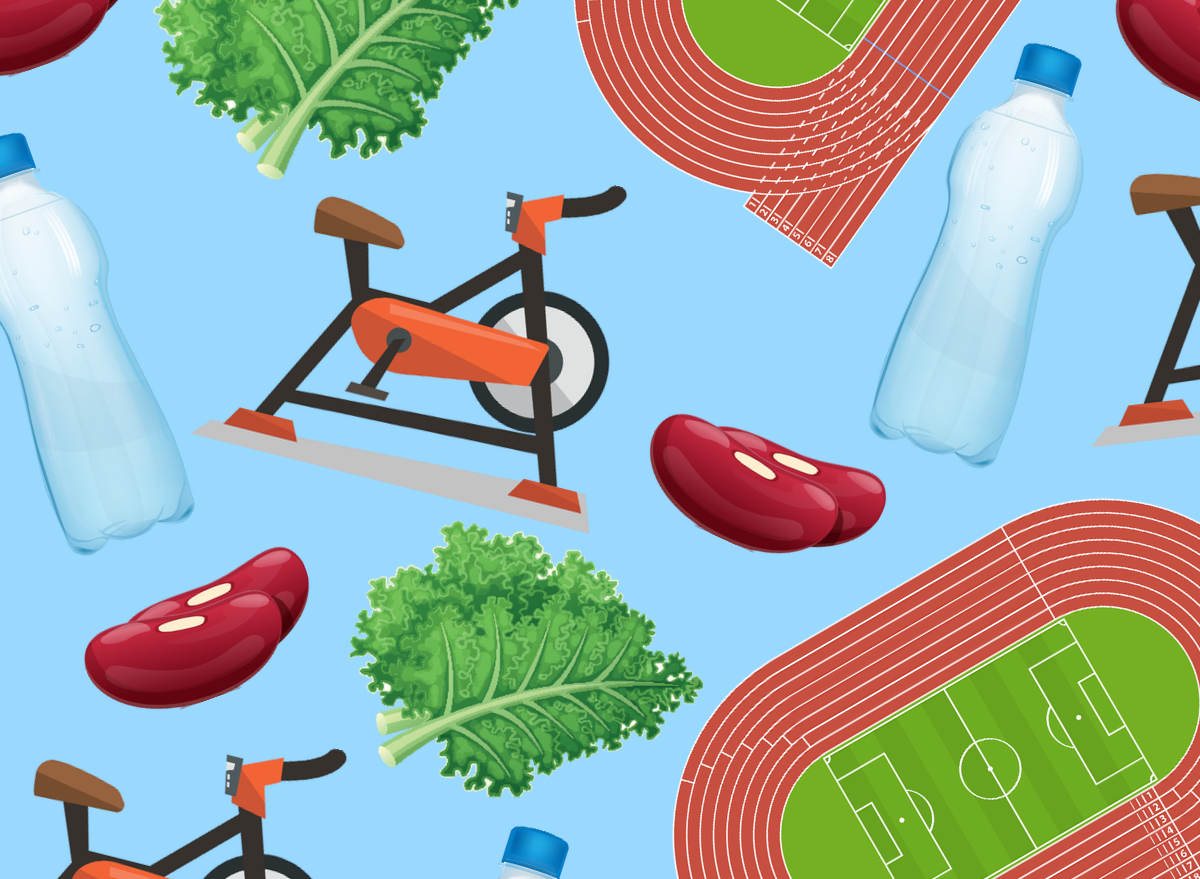Easy Ways You Can Prevent Heart Disease and Diabetes, According to a Registered Dietitian

Heart disease and type 2 diabetes often go hand in hand, as similar risk factors contribute to each.
Both diabetes and heart disease are considered non-communicable or chronic diseases. Unlike viral infections like the common cold or flu—or even infectious diseases such as COVID-19—which are caused by one thing, chronic diseases are caused by a collection of risk factors.
“While there are some risk factors that people are born with or can’t change, [such as] age, gender, [and] family history, the ways we live, move, and eat also contribute to the risk of contracting these conditions—especially when people have more than one risk factor,” says Becky Ramsing, MPH, RDN, and senior program officer at the Johns Hopkins Center for a Livable Future.
But most risk factors—including diet, physical activity, and smoking—are largely preventable, according to Ramsing. (Related: 100 Easiest Recipes You Can Make).
What are some easy ways you can prevent heart disease and diabetes?
Diet plays a large role in chronic disease prevention. For example, while eating a pint of ice cream every once in a while won’t necessarily increase your risk, routinely eating these types of unhealthy foods most likely will.
“Studies show that people who regularly eat more whole grains, vegetables, fruit, beans, and nuts—and less red meat, processed meat, saturated fats, highly processed foods, and sugar—tend to have lower rates of both diabetes and heart disease,” she says.
Eating a predominantly plant-based diet is one key way to reduce your risk of chronic disease, as the foods tend to be higher in fiber, vitamins, and antioxidants. Not to mention, plant-based foods also tend to be much lower in saturated fat.
“Red and processed meats, on the other hand, are high in saturated fat,” Ramsing says. “And eating too much can raise your risk of heart disease, diabetes, and even some cancers.”
On the contrary, substituting beans and lentils for red meat can help improve blood sugar levels, which is critical for diabetes prevention, as well as cholesterol and blood pressure levels—two major risk factors of cardiovascular disease. Ramsing suggests incorporating Meatless Monday into your weekly routine to help you reduce your consumption of meat while increasing your intake of plant-based foods.
“Whole grains may be one of the most important food groups for the prevention of diabetes,” Ramsing says. “Whole-grain intake was associated with an 11% and 7% lower risk of type 2 diabetes per whole-grain serving (16 grams) per day for men and women, respectively.”
How else might a plant-based diet help you prevent chronic disease?
Fruits, vegetables, legumes, and nuts all help to diversify gut bacteria, and having a rich variety of bacteria in your gut is associated with good health, according to Ramsing. Lower bacterial diversity, on the other hand, is associated with obesity, type 2 diabetes, inflammation, and high cholesterol.
“Much of this is thought to be due to fiber from diets high in vegetables and fruits, which promotes healthy bacteria,” she says. “Fats from nuts, seeds, vegetable oils, and seafood may also positively influence our guts. They are rich in monounsaturated and polyunsaturated fats, as well as protective phytochemicals and polyphenols.”
Of course, exercise is also key for preventing chronic disease. Going for a brisk walk, a jog around the local track, or even biking for 30 minutes each day are all great places to start.
“While you can’t guarantee you won’t get heart disease or diabetes, you can greatly reduce your chance of getting them even if your family does,” Ramsing says.
For more health tips, be sure to check out 8 Ways to Support a Healthy Immune System, According to Harvard.








